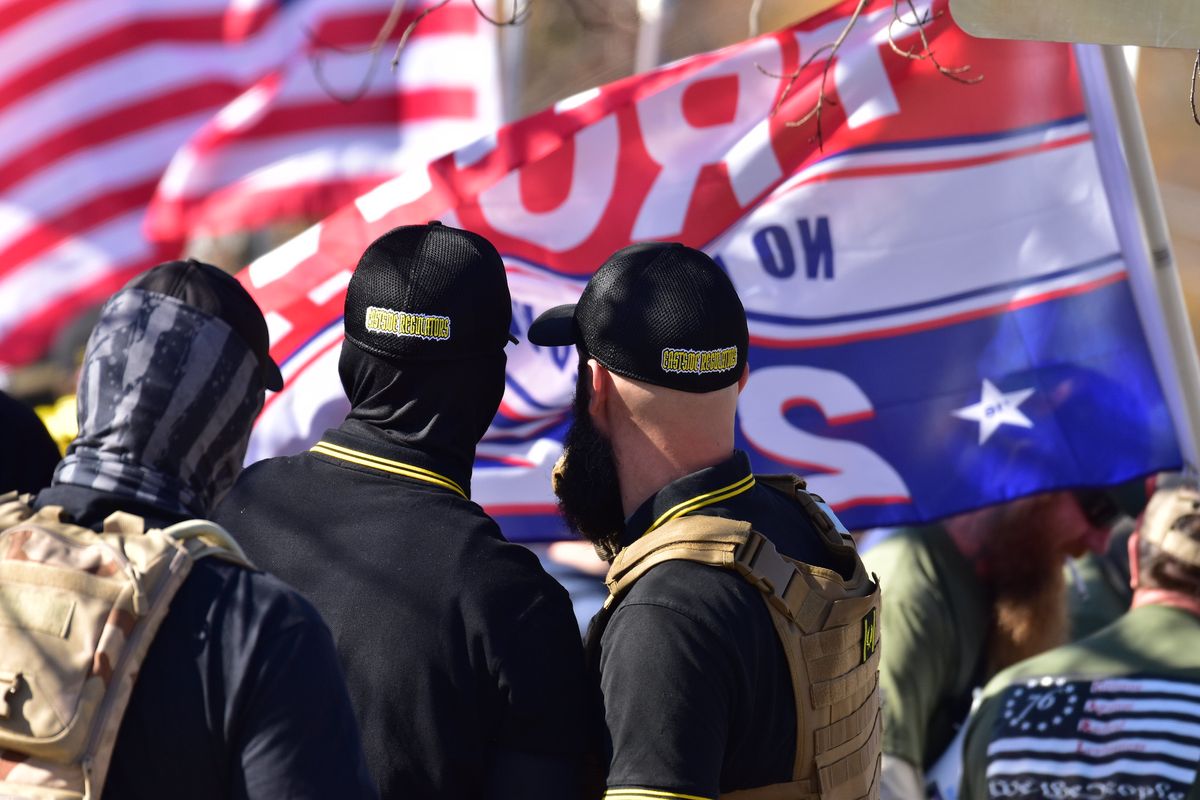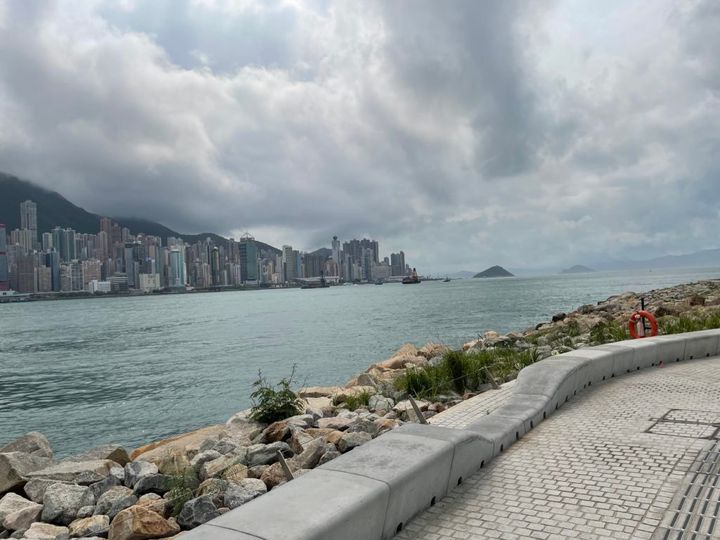The relentless state-based attacks on Black people in the U.S. and the war being waged against public and higher education are not unrelated.
In the present political and ideological climate, far right political leaders, such as Florida Gov. Ron DeSantis, Texas Lt. Gov. Dan Patrick and Sen. J.D. Vance (R-Ohio) have declared a war on institutions of public and higher education, which they’ve identified as centres of “unpatriotic education.” Most far right Republicans fear higher education as a bulwark against their authoritarianism and hence see students as a threat to their propaganda machines and fascist politics. As a result, the right wing has kicked into overdrive in an attempt to target educational institutions as a site for policing dissent, eliminating unions, indoctrinating faculty and students, and for normalizing white Christian nationalism, white supremacy and pedagogies of repression.
We have seen this in Ron DeSantis’s efforts to take over the progressive New College of Florida and turn it into a haven for white Christian education. DeSantis wants to remodel New College after the reactionary Hillsdale College, a private Christian liberal arts college that Kathryn Joyce states has played a “far-reaching role in shaping and disseminating the ideas and strategies that power the right.”
It’s clear that the far right GOP has deemed education to be the most powerful tool for creating a public that is neither informed nor willing to struggle to keep a democracy alive. This is particularly evident in the right-wing war on education, which aims at replacing public education with charter schools, fashioning public and higher education into centres of far right indoctrination, and destroying higher education as a democratic public good. Central to such an attack is a war on critical thinking, troubling knowledge, historical memory and any form of education that address social problems. Extremists in the GOP fully embrace both white nationalism and white supremacy while simultaneously supporting a culture and society in which the distinction between lies and the truth disappear. What they would also like to see disappear in their reign of domestic terrorism are the educators, institutions, and other public spaces that resist this ongoing tsunami of authoritarian ideas, acts of repression, and war on critical intellectuals, dissidents and educators.
Authoritarian societies firmly embrace the notion that history is written by the victors. In doing so, they wage a war on historical memory as part of an effort to not only control historical knowledge particularly in relation to Black and Indigenous people, but also to disguise dominant power relations in acts and policies that produce a “diligent and continual silencing … required to maintain its claims on the present and future.” As whiteness is increasingly secured through voter suppression, border enforcement, gerrymandering and state violence, far right politicians and their allies have expanded their repressive pedagogical mechanisms of discipline and economic measures of control to include cultural apparatuses such as social media platforms, as well as public and higher education.
It is the attempt on the part of the GOP to control historical knowledge and extinguish democratic freedoms in the service of rampant white nationalism and white supremacy that fuels the attack on public and higher education and its dirty war against racialized populations. There is more at stake here than putting up barriers to the development of critical thinking and the fostering of a radical imagination among students. The fascist politics at work is more expansive and destructive, and has become the bedrock strategy to transforming public and higher education into citadels of repression and white supremacist disimagination machines.
It is an ongoing project designed to define whiteness as a totalizing tool of domination, which is used to enact pedagogical practices that prevent Black and Brown students from learning from the trajectory of history. As Angela Davis observes, it is an attempt to prevent all students from understanding the “nature of U.S. history and the role that racism and capitalism and heteropatriarchy have played in forging that history.” Teaching critically about race denotes a history that exposes dangerous memories, reveals acts of resistance that have been consigned to oblivion, and reveals the manifold wrongs of a society that allow for the domestication of the unimaginable.
The Mass Production of Manufactured Ignorance
The far right endeavours to mass produce historical and social amnesia and manufactured ignorance. A passive and depoliticized citizenry is now coupled with an accelerating struggle to destroy any public institution that would challenge such efforts. In addition to right-wing policies that disparage anti-racist pedagogy, silence cultures of questioning, and smother independent thinking by associating the latter with socialist ideals, there is also an attempt to remove the intellectual and institutional conditions in which historical memory, critical education, and civic literacy inform each other as part of the broader goal of creating informed and engaged citizens. Central to this repressive pedagogical project is an attempt to squelch memory and freeze history to domesticate thought and turn historical amnesia into a weapon of miseducation.
In this attack by the assassins of history, memory and truth, there is an erasure of the legacies of slavery, Jim Crow, systemic racism, the Black Power movement, Black Panthers, and the political and racist conditions that gave rise to the Black Lives Matter movement. There is more at work here than a right-wing push to rethink the legacies of slavery and anti-racist struggles; there is also a concerted effort to ban any attempts to teach Black children the truth about their history. As Marian Wright Edelman notes in her comments on Carter G. Woodson, the son of a formerly enslaved person, Woodson was clear about white people refusing to teach Black students about their rightful place in history, and about how the stakes in these debates involved “more than an academic discussion.”
She writes: “He saw the connection between erasing Black history and assaulting Black bodies and said the crusade to teach the truth about Black history was even ‘much more important than the anti-lynching movement, because there would be no lynching if it did not start in the schoolroom. Why not exploit, enslave, or exterminate a class that everybody is taught to regard as inferior?’”
What also disappears in this right-wing indoctrination project are elements of the long war on Black people waged by both Republicans and Democrats. These would include the rise of the Southern Strategy, Richard Nixon’s racially motivated war on drugs, Ronald Reagan’s disparaging of so-called welfare queens, Bill Clinton’s racist and punishing welfare and incarceration policies, and Donald Trump’s relentless demonization of migrants and Black people. Moreover, the myriad achievements, struggles, resistance and culture produced by Black people over 400 years is either erased or trivialized. How else to explain the current right-wing attempt to censor, disparage and ban the 1619 Project from being used in public schools? How else to explain right-wing attempts to ban books by and about Rosa Parks, Martin Luther King Jr., Ruby Bridges, Angela Davis, Audre Lorde, June Jordan, Robin D.G. Kelley, and other prominent African Americans?
How else to explain the campaign by Governor DeSantis and attempts by Florida’s Department of Education to ban a new Advanced Placement African American Studies course because it included “woke education masquerading as education” and “lacks educational value”? DeSantis makes his case for disparaging the A.P. course by citing as propaganda the work of a range of notable African American writers, including bell hooks, Kimberlé Crenshaw, and others. Moreover, it is hard to take seriously DeSantis’s charge that the A.P. course lacks educational value when it includes work by the famed literary scholar Henry Louis Gates Jr., historian Nell Irvin Painter, and Black icons such as Frederick Douglass, James Baldwin and Bayard Rustin. As Janai Nelson notes in The New York Times, “This disturbing pattern of silencing Black voices and aggressive attempts to erase Black history is one of the most visible examples of performative white supremacy since the presidency of Donald Trump.” Jelani Cobb adds insightfully to this critique by insisting that DeSantis and the Florida education department want the public to believe “that the evils of the past are not nearly as dangerous now as the willingness to talk about them in the present.”
The Right Is Waging a State-Based White Supremacist Assault
The right wing in the U.S. is now waging a battle against the histories, memories and social institutions that make democracy possible. It is a war against the development of an educated public for the present and future, especially from the ranks of people of colour. At the heart of this war is a project of indoctrination that views “dangerous” memories and critical thought as anti-American. Central to this dirty war is an attack on historical consciousness as the foundation of critical thinking, the civic imagination and empowered forms of political agency. Its core organizing idea is the suppression of Black history and the teaching of anti-racist practices. What is called anti-woke by right-wing politicians and pundits is nothing less than an attempt by white supremacists and nationalists, in the words of James Baldwin, to barricade themselves “inside their history.” This historical racism and attack on memory is a part of a larger political strategy the right-wing self-proclaimed “culture warriors” enthusiastically promote as their “culture wars.” The historian Jason Stanley, writing in The Guardian, argues that right-wing “cultural warriors” who conduct a “culture war” that whitewashes history, bans ideas and censors books is nothing less than naked fascism.
This initial “anti-woke” ideology was unapologetically articulated by former President Trump, who made his ongoing support for white supremacy clear when he claimed in March 2022 that keeping critical race studies “out of our schools … was a matter of national survival.” Trump is worth quoting given his merging of racism and McCarthyite, anti-communist rhetoric: “We have no choice. The fate of any nation ultimately depends on the willingness of its citizens to lay down and they must do this — lay down their very lives to defend their country. … If we allow the Marxists and commies and socialists to teach our children to hate America, there will be no one left to defend our flag or to protect our great country or its freedom.”
Since 2020, the white supremacist assault on Black history, anti-racist pedagogy and social justice issues have moved from the White House to a state-based strategy — most visible in the educational policies put into play in a number of GOP-controlled states. One striking (if not scandalous) example is evident in DeSantis’s aim to mould human agency by turning schools into dead zones of the imagination. DeSantis’s regressive policies extend far beyond preventing the A.P. course on African American history from being used in his state. As is well known, DeSantis’s war on critical education, anti-racist pedagogy, African American history, and curricula that include knowledge about trans people has been as aggressive as it is extensive — and always with a whiff of high-drama political theatre, which makes clear that the discourses of racial hatred and white nationalism contain valuable political currency. DeSantis has brought selective elements of Jim Crow back without apology and in doing so, has focused on policies that erase history through the imposition of censorship and a form of apartheid pedagogy that constitutes a form of anti-memory that refuses to hold racial injustice to account. Under DeSantis, the politics of disappearance emerges as a set of take-no-prisoners policies that combine censorship, the demonization of educators and full-fledged attacks on public and higher education. It also entails the criminalization of teachers who engage matters of racial injustice, forcing professors to take loyalty oaths, and the enactment of politics of silencing aimed at erasing trans people from the historical record, books and curricular materials. DeSantis’s “Don’t Say Gay Bill” forces teachers to be silent about sexual orientation and gender identity issues while using his office to baselessly target and label people who oppose this bill as pedophiles. Meanwhile, in Texas, there are GOP calls to criminalize anyone who provides care for trans people.
There is more at work here than enforced ignorance; there is also a culture of cruelty that makes societal pariahs out of LGBTQ youth while doing irreparable harm to their parents, teachers and caregivers. This is unadulterated hatred hiding behind the fake respectability of the law. Will Bunch, the talented writer for The Philadelphia Inquirer, is right in stating that the “violent, expanding war on LBGTQ kids” by DeSantis and other Republican lawmakers “should make you think about 1930s Germany.”
DeSantis’s war on academic freedom, critical pedagogy, troubling knowledge and dangerous memories is also evident in his ludicrous “Stop Woke Act,” which restricts teachers from talking about racial inequality, systemic racism, civil rights struggles, slavery, and any other issue regarding racial justice that might make students uncomfortable, as if how they feel is the ultimate measure of teaching them to be informed and critical citizens. Paul Krugman, writing in The New York Times, is right in stating that in reality, it appears that DeSantis and his Republican allies want to ban anything “that makes right wingers uncomfortable.” DeSantis has banned math books he claims are politically offensive, passed a bill requiring that teachers remove or cover up books from classrooms that have not been approved by a state compliance censor, used public school funds to expand charter schools, attacked public schools as crucial civic institutions, and waged a full-scale war on democratic values and social relations.
Barbara Ransby is laser-sharp in arguing that DeSantis’s attack on critical education and his support for white nationalism and authoritarianism “stands in the tradition of practices we have seen in the fascist past that have remerged in the present.” She is worth quoting at length:
In this way, DeSantis and his allies uphold the kind of indoctrination he claims to oppose. He stands in the tradition of the Nazis who burned books for fear that their antisemitic lies would be challenged in print. He stands in the tradition of the 1976-1983 Argentinian dictatorship that jailed and exiled dissident professors and killed their students. He stands in the tradition of Turkey’s dictator Recep Tayyip Erdoğan, who has purged, jailed or exiled over 100,000 educators and intellectuals because they wrote and taught ideas he saw as a political threat. DeSantis’s dangerous actions are textbook proto-fascist measures. His militant opposition to any teaching of the Black freedom struggle is also reminiscent of the South African apartheid regime’s book banning and curricular and speaker censorship, which limited the circulation of ideas that could undermine the legitimacy of an unjust system.
At the heart of the “Dirty War” being waged against marginalized groups in the U.S. is an attack on historical consciousness that not only connects the past to the present, but also provides in the memory work essential for understanding the repressive nature and structural forces at work in the war against Black people, women, LGBTQ people, and others relegated to the category of disposable. The right wing’s declared war on democracy is rooted in a politics of disappearance in which history is shredded and matters of truth, evidence and moral witnessing are erased. Subjectivity is the material of politics, and uncovering alternative histories is not simply a pedagogical task, but a crucial tool in creating political agents capable of remembering the horrors of a past that cannot be repeated.
When the racist history of the past disappears, and when educators who teach critical ideas are criminalized, structural racism becomes invisible and racist acts become individualized as a matter of attitude and faulty character. When racism is reduced to alleged self-inflicted behaviours, people blame themselves for their feelings of inadequacy, impoverishment and alleged deficits, making it all the more difficult to translate and understand individually experienced acts of racism as part of a larger system of racial capitalism.
The fascist plague that is now shaping public and higher education needs to be addressed with a new language that makes education central to politics and historical consciousness. Such a language needs to make the politics of remembering a crucial pedagogical tool in changing the way people connect events, rethink the present political conjuncture, and understand the history of the present.
Henry A. Giroux currently holds the McMaster University Chair for Scholarship in the Public Interest in the English and Cultural Studies Department and is the Paulo Freire Distinguished Scholar in Critical Pedagogy. His most recent books include: American Nightmare: Facing the Challenge of Fascism (City Lights, 2018); The Terror of the Unforeseen (Los Angeles Review of books, 2019), On Critical Pedagogy, 2nd edition (Bloomsbury, 2020); Race, Politics, and Pandemic Pedagogy: Education in a Time of Crisis (Bloomsbury 2021); and Pedagogy of Resistance: Against Manufactured Ignorance (Bloomsbury 2022).



